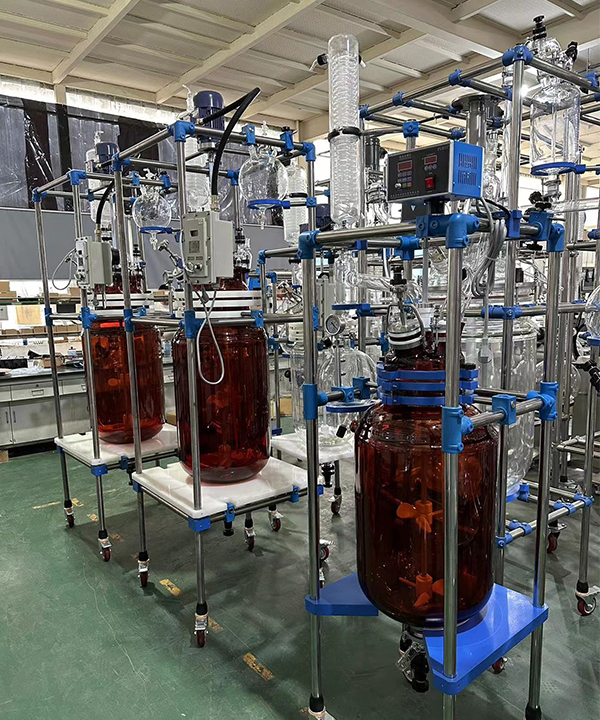Glass Reactors: A Versatile Tool for Laboratory Chemistry
Glass reactors are a type of laboratory instrument that are widely used for various chemical synthesis, biochemical research, and development purposes. They consist of a glass vessel with an agitator and various ports for the addition and removal of materials, such as reagents, samples, and gases. The glass material of the vessel body offers excellent visibility of the reaction process, which can be observed visually to determine critical parameters like color changes, temperature variations, etc.
Advantages of Glass Reactors
Glass reactors have several advantages over conventional batch reactors, such as:
· Compared to a batch process, the glass reactor’s compact size and microstructure facilitate mixing and heat transmission, resulting in enhanced product profiles and greater yields
· Glass reactors are generally operated in a continuous flow mode, which means that the scale of the synthesis is determined by the flow rate and operation time, not by the size of the reactor. With a reactor volume of less than a milliliter, flow chemistry allows the synthesis from g to kg amounts in a single day
· The tiny reactor capacity makes handling dangerous or unstable materials and extremely exothermic reactions safe and simple. The glass vessel is also inert and non-reactive to most chemicals, providing a safe environment for researchers to conduct experiments
· Glass reactors are ideal tools for process development, as they allow fast and easy screening of different reaction conditions, such as temperature, pressure, catalysts, etc
Applications of Glass Reactors
Glass reactors are essential devices in laboratory environments where precise, controlled reactions and detailed observation of chemical processes are required. They can be applied to various fields, such as:
· Glass reactors are widely used in various chemical synthesis reactions, crystallization processes and separation and purification in the chemical field. They can also be used for polymerization, condensation, alkylation, hydrogenation, nitration, vulcanization and other processes
· Glass reactors are mainly used for cell culture, fermentation, and the preparation and purification of biological macromolecules such as proteins. For example, in the field of cell culture, glass reactors can be used to construct bioreactors, so as to achieve large-scale cultivation and production of cells
· Glass reactors can be used for the synthesis and characterization of novel materials, such as nanomaterials, biomaterials, functional materials, etc. They can also be used for testing the properties and performance of materials under different conditions
· Glass reactors can be used for the discovery and optimization of new drugs and drug candidates. They can also be used for the synthesis of intermediates and active pharmaceutical ingredients (APIs)
· Glass reactors can be used for the production and quality control of food additives, flavors, fragrances, cosmetics, etc. They can also be used for the extraction and purification of natural products from plants or animals
Post time: Jun-13-2023


